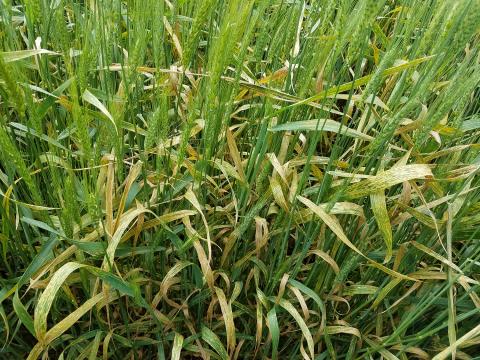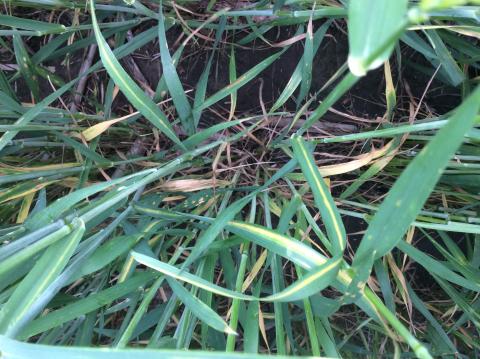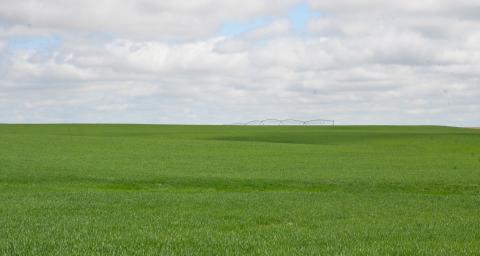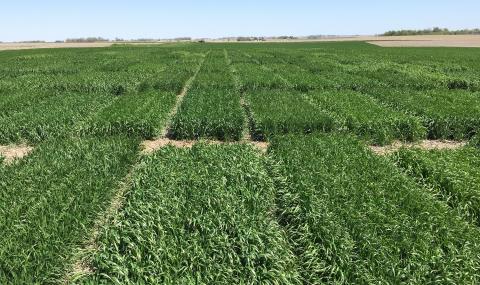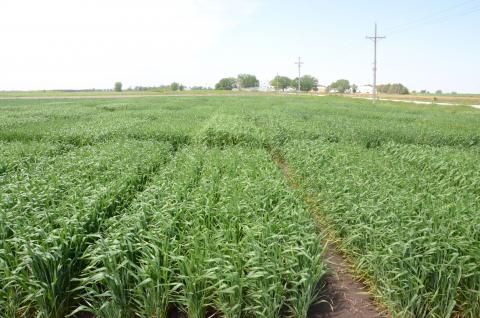Percent Corn (95%) and Soybean (76%) Planted near Long-Term Averages
June 1, 2017
For the week ending May 28, cool and mostly dry conditions prevailed, according to the USDA’s National Agricultural Statistics Service. Average temperatures ranged from three to nine degrees below normal. Some areas of the Panhandle and southeast Nebraska received up to an inch of rain; however, much of the state remained dry.
Stripe Rust Predominant Disease in Nebraska Wheat
May 26, 2017
In a survey of wheat fields and research plots in south central and southeast Nebraska on May 24-25, stripe rust was the predominant fungal disease found. Its increase is due to the rainfall and cool temperatures that have prevailed during the last two weeks.
Cephalosporium Leaf Stripe Developing in West Central Wheat
May 25, 2017
Cephalosporium stripe, caused by a soilborne pathogen, is developing in wheat in west central Nebraska and may reduce yields if severe.
Stripe Rust Increasing in Nebraska Wheat
May 25, 2017
Recent rainfall and cool temperatures have favored development of stripe rust to severe levels on flag leaves in fields that have not been sprayed as shown in Figure 1, a photo taken Wednesday, May 24, in a grower’s field in Webster County in south-central Nebraska.
Wheat Disease Update: Wheat Streak Mosaic
May 19, 2017
A survey of wheat fields in the Nebraska Panhandle found only trace levels of stripe rust and low levels of tan spot, but widespread areas of wheat streak mosaic virus with severity ranging from mild to severe.
Compare Varieties at Winter Wheat Field Days this June
May 17, 2017
Nebraska Winter Wheat Field Days will be held at eight sites in the Panhandle and west central and southeast Nebraska this June. View current commercial and experimental lines and plots of ongoing research.
Wheat Disease Update in Eastern Nebraska
May 12, 2017
Research plots at UNL’s Agricultural Research and Development Center (ARDC) were surveyed for diseases on May 12. These plots are not sprayed with fungicide and therefore the diseases and disease levels in them can be representative of those in growers’ fields under similar conditions. Here's what we found.
